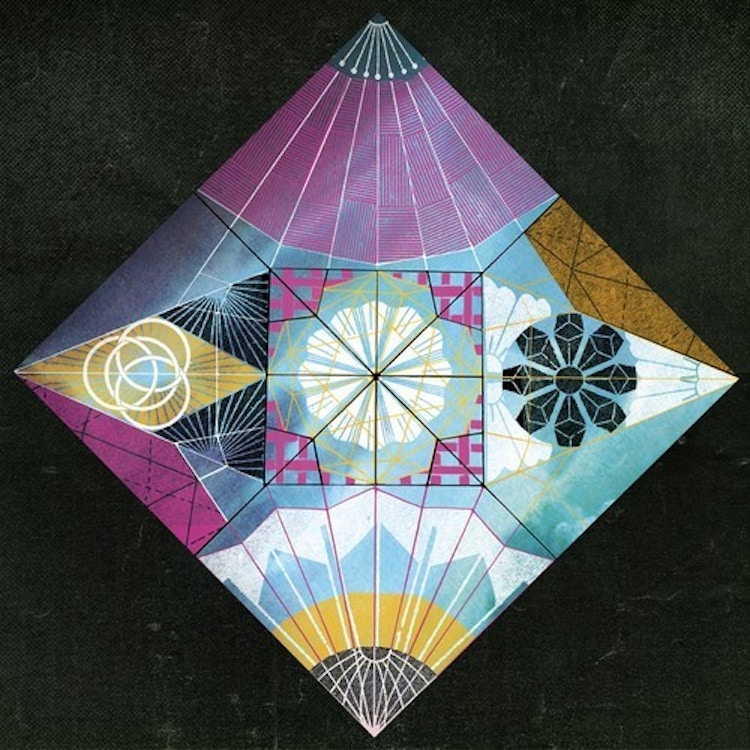"Warp and Weft"

After over a decade of exquisite music-making, Laura Veirs is in rarified air. Few artists can boast a back catalogue of such fluidity and quality, whose new songs inherit good regard before first hearing, class assured by their creator’s own high standards.
All of this creates the unfair potential for anticlimax – but Veirs accords much respect to her listener too. These aren’t shallow songs for the beautiful people, but lucid and sensitive reflections on the triumphs and traumas of being. Warp and Weft seems to reflect Laura Veirs as mother, as much as songwriter – and if July Flame was Veirs reaching a songwriting peak, Warp and Weft belongs at the same summit, even if the vista is rather bleaker.
‘Sun Song‘, the first single, is a bridge from July Flame, one of those indelible melodies at which Veirs is most adept. A gorgeous blend of voice, guitar and luscious strings, with a glinting tint of Neko Case for good measure – one of many guest contributors including k.d. lang and Jim James. The song ends on a gloriously resonant chime, a finger-flicked fishbowl divining the sea.
‘America’ is a corner turned, a cold front approaching, as “Everybody’s packing heat in America / Training their barrels on the city streets of America”. It’s an anxious lament that glints like obsidian, evoking turbulence with sultry lilt and well-chosen words. Veirs has always infused her songs with sun and sea, with ice and fire – but here her inspiration is more anthropocentric than before. Nowhere is this clearer than in the pathos of ‘Sadako Folding Cranes’, a delicate depiction of Sadako Sasaki’s story and legacy, taking her monument’s inscription as its chorus.
‘Dorothy of the Island’ likewise evokes poignant suffering (a mother who “fell into a well inside her head”). Incorporating the traditional ‘Motherless Children’, electric guitars circle with redolence around an anchored rhythm, and gradually allay the sorrow. If the nods to trad songs are a habit formed from Tumble Bee, their treatment is very different. The version of ‘Say Darlin’ Say’, winking at ‘Who’s gonna shoe your pretty little feet?‘, also gives the countrified sound an electric crunch and offbeat kick, much like a Piney Gir record, before coming to rest in a railway siding (“on that train and gone”, indeed).
Veirs might have moved on from the quirky drum loops of her earlier work but the standard guitar and strings arrangements are still being subverted. ‘Ikaria’, one of two instrumentals, is a gentle electro-pop riff, while final track ‘White Cherry’ switches things up with a choppier jazz tune, billowing harp below vaguely optimistic vocals. ‘That Alice’, a more explicit tribute to jazz harpist Alice Coltrane in the tradition of ‘Carole Kaye‘, cuts loose with expansive guitar, while an earlier tribute to folk artist Howard Finster finds Veirs in reflective, spiritual mood. Although she is preceded by her reputation as a literate and thoughtful lyricist, the integral rhyming of Alice with palace shows Veirs retains her fondness for simple wordplay, amidst the rich imagery. Tucker Martine’s production again captures the cocooning intricacies of his wife’s refined songwriting, alongside the heft and mettle of a full-band studio sound.
Laura Veirs was heavily pregnant with her second child during the recording, and speaks of recognising the fine line between life and death, the amplification of her fears as a parent. Love and fear, heritage and hope, west and east interweave on Warp and Weft. This is a creative and varied set of songs that spiral high and swoop low, sometimes both at once – and there isn’t a weak link amongst them. Mesmeric.
Get the Best Fit take on the week in music direct to your inbox every Friday

Great Grandpa
Patience, Moonbeam

Deafheaven
Lonely People With Power

Perfume Genius
Glory





